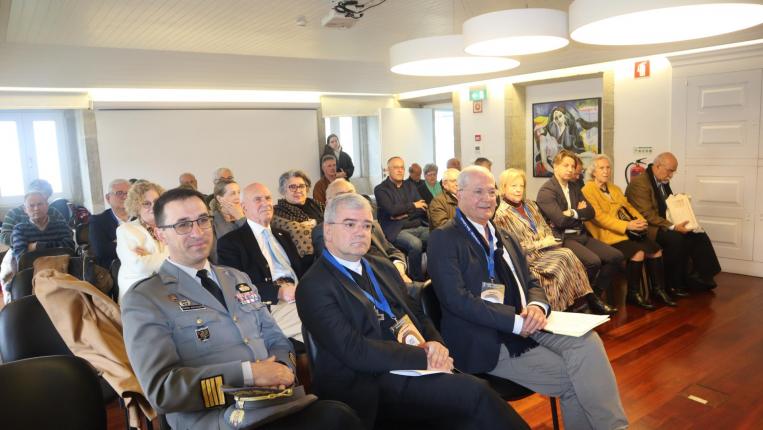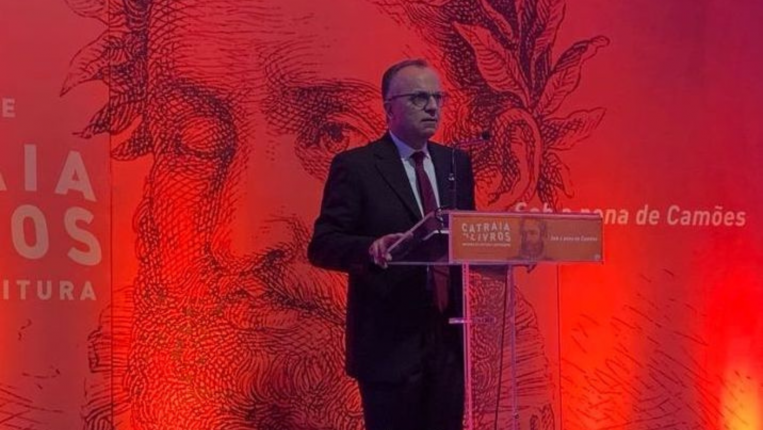The ‘Cultural Push’ pilot project argues that inclusion through culture needs the support of schools, organisations and companies.

The Bracara Augusta Foundation and CERCI Braga are committed to demonstrating that ‘In Culture Everyone Counts!’ and that only through partnerships and networking will it be possible to promote the participation and social inclusion of the most socially and/or intellectually disadvantaged groups. With the partnership of the Museums and Monuments of Portugal organisation, through the Biscainhos Museum and the D. Diogo de Sousa Museum, and with the support of the Municipality of Braga, the project aims to unleash a real ‘Cultural Push’, in a movement for change that will bring together other social and cultural organisations, as well as the city's business community.
The protocol was signed today at the Museu dos Biscainhos, providing all the details of a pilot project that emerged as part of the international ISA Culture, led by the Bracara Augusta Foundation and funded by the Erasmus+ programme.
Companies are challenged to join this project which, in addition to cultural democratisation, also sees access to culture as a way of demonstrating the added value of these disadvantaged groups, promoting their social inclusion.
The Mayor of Braga, Ricardo Rio, said that ‘the Municipality of Braga feels particularly identified with the objectives involved in this cultural project, promoting accessibility to culture, heritage and museums, firstly in a comprehensive way, for the population as a whole, and also for certain sections of the population’.
‘Reconciling accessibility to culture with inclusion is a very virtuous strategy that this ‘Cultural Push’ has,‘ said Ricardo Rio, stressing the need to involve cultural facilities and the business community, challenging it to be an inducer of behaviours and practices’.
Referring to the conclusions of the study carried out by the Braga Regional Centre of the Portuguese Catholic University (UCP) on access to culture, the mayor of Braga argued that ‘the lower the data on lack of access to cultural facilities and activities, the more developed our municipality is, the more fulfilled our people are and the better quality of life they have’.
‘We understand that culture is, in fact, an engine of growth for our territory and if we are not yet at the level we want, then let's give this ‘Cultural Push’ all together so that Braga is increasingly a reference in this area,’ she concluded.
Cláudia Leite, from the Board of Directors of Museus e Monumentos de Portugal, emphasised that ‘only through cooperation projects and joint work is it possible to promote greater access to culture and closer enjoyment of cultural heritage’.
In the same vein, the chairman of the Bracara Augusta Foundation's Board of Directors said that this project aims to ‘collectively mobilise around culture, and this implies a “push” on the part of companies, institutions and schools to strengthen and bring cultural dynamics closer together’.
The executive director of the Bracara Augusta Foundation, Fátima Pereira, said that the project is kicking off this afternoon at the Biscainhos Museum, with a guided tour of the Triformis company led by Paulo, a young CERCI user, and a second tour led by Rita, a student at the Profitecla Professional School, is planned for the future. A list of young people who will take part in the project and of companies available to mobilise their workers and form groups for previously scheduled visits has also been prepared.
In this regard, the president of CERCI Braga, Vera Vaz, explained that users always had difficulties accessing culture and museums because the guides didn't feel prepared to communicate with them in the best way.
The challenge that CERCI set the Bracara Augusta Foundation was precisely to create a project that was more accessible to these audiences, transforming culture into a vehicle for inclusion, with the dual aspect of these young people being able to receive knowledge and participate as workers.
The project was developed on the basis of scientific data. At the end of 2023, a survey of the population regarding Cultural Participation in Braga was carried out with the scientific support of UCP, the results of which point to the lack of free time, the associated costs and the lack of information about the programme as the main barriers to accessing culture.
The study reveals that there is considerable interest among Braga residents in culture, but also significant barriers related to financial and informational accessibility.





